Graduate Students
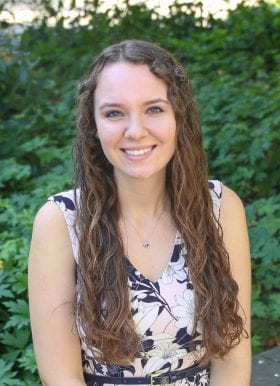
Brittany Brumback, MS, PhD
PhD Student
Brittany received her Ph.D. in Biomedical Engineering in July 2022. She is a former NSF GRFP awardee. She joined the Rentschler Lab in May 2017 and received her M.S. in Biomedical Engineering from Washington University in St. Louis in May 2018. She received her B.S. in Biomedical Engineering from The George Washington University in May 2016 where she was an undergraduate research fellow in Dr. Igor Efimov’s cardiovascular engineering lab. Her thesis research focused on studying left/right differences in gene expression that regulate electrophysiology in the context of development and disease in both mouse and human ventricles. Her research spanned across mouse models, adult human donor hearts, and iPSC-derived cardiomyocytes. One of her goals was to sort the different heart field progenitor pools early during iPSC-derived cardiomyocyte differentiation to create a platform for translating mouse studies on chamber-specific differential response to drugs, signaling pathways, and mutations. She has studied abroad at the University of Melbourne in Australia and conducted summer research in Brazil. She is passionate about traveling and extreme sports such as bungee jumping, skydiving, glacier climbing, and white-water rafting. Brittany is currently a consultant for ClearView Healthcare Partners, a life science consulting firm.
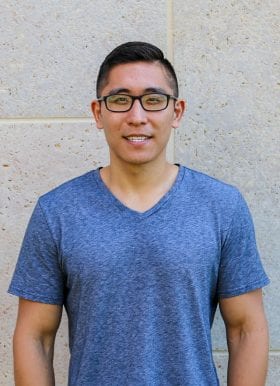
Rich Gang Li, PhD
PhD Student
Rich Li received his PhD in Biomedical Engineering in August 2020. He started in the Rentschler lab in May 2015. He received his B.S. in Biomedical Engineering and Mathematics from Washington University in St. Louis in 2012. Rich’s thesis is on the role of Wnt signaling in cardiac development, disease, and electrophysiology. Specifically, he combines molecular and electrophysiological techniques to ask whether perturbing Wnt developmentally or in the adult can lead to arrhythmias. Additionally, he was interested in whether canonical Wnt signaling is altered in cardiac injury or disease, by using both human organotypic slices and mouse models. Outside of the lab, Rich enjoys board games, cooking and fitness. You can find him occasionally running with his friends or partying with his dog Rizzo. Rich is now completing his postdoctoral fellowship at Baylor College of Medicine.
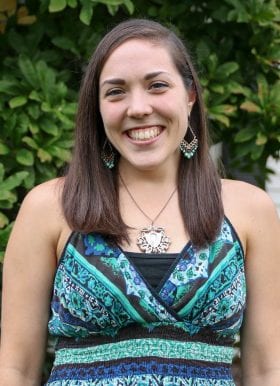
Kate Lipovsky-Durkee, PhD
PhD Student
Kate Lipovsky received her PhD in the Developmental, Regenerative, and Stem Cell Biology program in May 2020. She joined the Rentschler Lab in March of 2014. She received her B.S. in Biology with double minors in Philosophy and Psychology from Bradley University in 2013. Her fascination with cardiovascular research began when she was 9 years old and her father received a successful heart transplant after undiagnosed atrial fibrillation led to multiple strokes and subsequent heart failure at the age of 40. Her project involved understanding the effects of cardiomyocyte-specific Notch signaling activation on electrical remodeling and atrial arrhythmogenesis in the adult. She is interested in pursuing a career in which she can apply insights of molecular mechanisms underlying cardiac development and disease towards innovative approaches to cardiac regenerative medicine. When not in the lab, she enjoys running and hiking with her husband Philip and spending time with her two cats, Mr. Miogi and Zoe. Kate is now a postdoctoral scholar at UC San Diego.
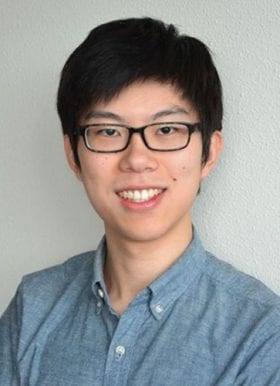
John Yun Qiao , PhD
PhD Student
John received his PhD in Biomedical Engineering in the Rentschler Lab where he was co-mentored by Dr. Stacey Rentschler and Dr. Igor Efimov. After graduation he went on to be a senior scientist at Abott studying arrhythmia management and is currently a signal processing engineer at CoreMap.
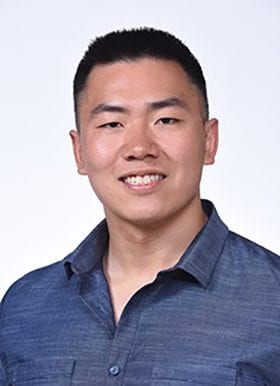
David Zhang, PhD
MSTP Student
- Email: davidzhang@wustl.edu
David is a MD/PhD student at Washington University School of Medicine. He joined the Rentschler Lab in June 2018 as part of the Molecular Cell Biology program. He completed his PhD research in May 2022. Previously, David earned his B.S.E in Bioengineering at the University of Pennsylvania, where he studied mechanisms of von Willebrand factor metabolism and left-ventricular assist device design. His research interests include dysregulated cellular signaling pathways and arrhythmogenesis in cardiovascular disease, and he plans to pursue a career in academic medicine. Beyond his academic interests, David is a proud Boston sports fan who enjoys Alpine skiing and ice fishing.